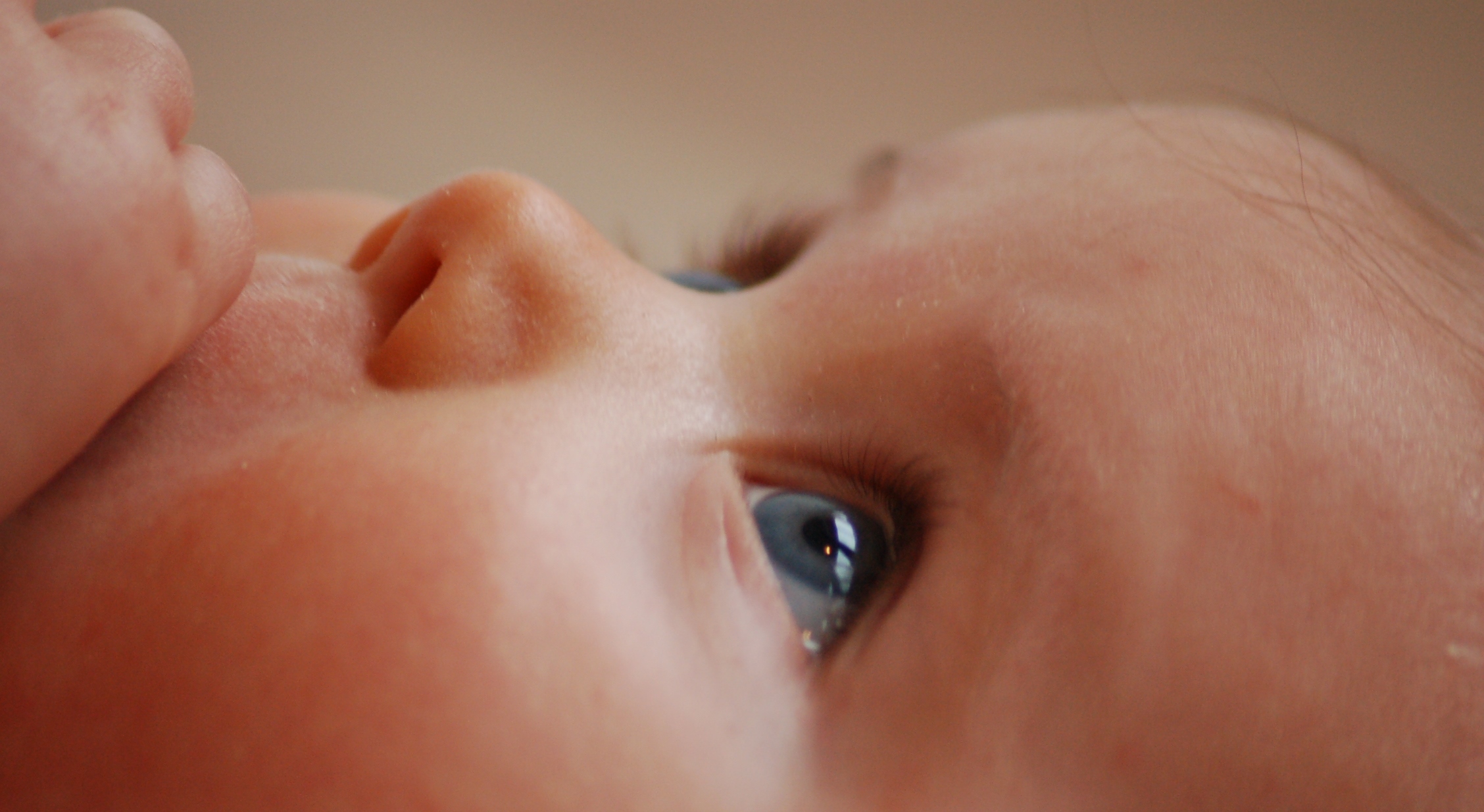
CC0 – Public Domain. Pexels.
There is a special poignancy about the neonatal intensive care unit on Christmas day. Whilst billions around the world are celebrating the birth of one special baby, we are struggling to care for 20 or more desperately ill and fragile newborns, tiny human beings who cling to life with the help of advanced medical technology.
In the baby unit in central London where I spent most of my professional career, every Christmas the senior nurse, decorated the unit with tinsel and cards. Every baby had their own tiny stocking filled with miniature presents hanging from the incubator door on Christmas morning. Parents, grandparents and siblings visited the neonatal unit to share the special day with their newborn relatives.
Occasionally an older child or adolescent who had been an inpatient on the unit years previously, would arrive with their family. I remember meeting an 18 year old with a punk hairstyle and nose stud. When she told me her name, the scene came back with a rush. I had just started working as a junior registrar on the neonatal unit and was called urgently to an extremely premature delivery. The baby weighed about 500 gm, and she was the tiniest baby I had ever seen. Somehow with the help of an experienced neonatal nurse I managed to resuscitate her and place a tiny tube into the trachea to inflate the lungs. I remember rushing down the stairs one floor from the delivery suite to the neonatal unit literally cradling her in my cupped hands. We hooked her up to the life support machinery. She was on the neonatal unit for more than 10 weeks but against all the odds she did well and went home close to the date when she was due to be born, weighing a whopping 2 kg. Could that tiny squirming baby in my cupped hands really be the same person as this striking and trendy young woman?
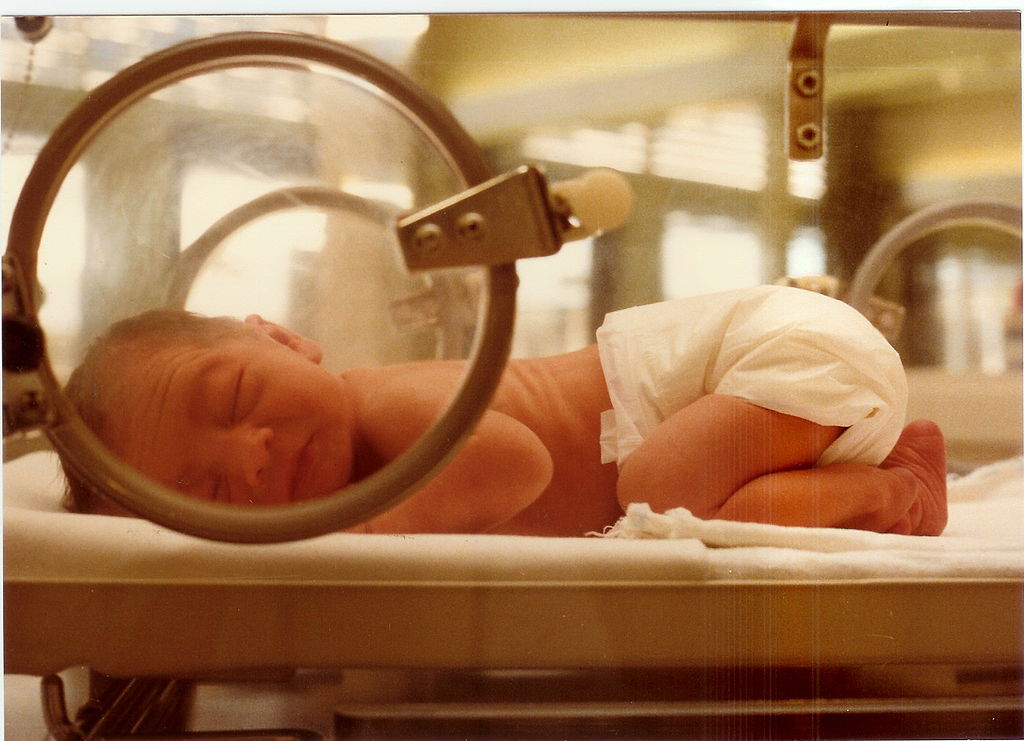
Neonatal Jacoplane By Jacoplane (well, his parents anyway) (Own work) [GFDL or CC-BY-SA-3.0], via Wikimedia Commons
Through medical eyes, the account in Luke’s gospel of the birth of Jesus is strange and frankly shocking. Luke is claiming that the ultimate God of supreme power, intelligence and glory, has chosen to turn himself into a pathetic, fragile, vulnerable baby. Not some kind of Christmas card fantasy cherub, but a real baby who cries and sucks on a human breast. A baby who needs to have his bottom wiped; who needs to be carefully wrapped up and swaddled to prevent hypothermia.
Is this the kind of being that any self-respecting divinity would choose as a means of self-revelation?
In the culture of the time babies were often despised and neglected. Infanticide was common, even routine, and approved by many philosophers and statesmen. At almost exactly the same time as the birth of Jesus, a Roman physician is writing a textbook for midwives. It includes a chapter called “How to choose the newborn that is worth rearing”. The author recommended a detailed clinical examination immediately after birth in order to detect any abnormalities or signs of illness. Babies who were too weak or malformed were usually exposed, strangled or drowned at birth. In the culture of the time it was the so-called masculine virtues which were universally respected – strength, athleticism, military prowess, courage. Of what possible significance was a puking, wailing baby?
The suggestion that the God of the universe might become a baby was ludicrous, crude and offensive. To the orthodox Jew, God’s glory was eternally hidden from human eyes in deepest darkness, worshipped by seraphim and cherubim. To the Platonic philosophers of the time God was mystical and immaterial – the eternal Form of The Good – far from the sordid realities of a stable.
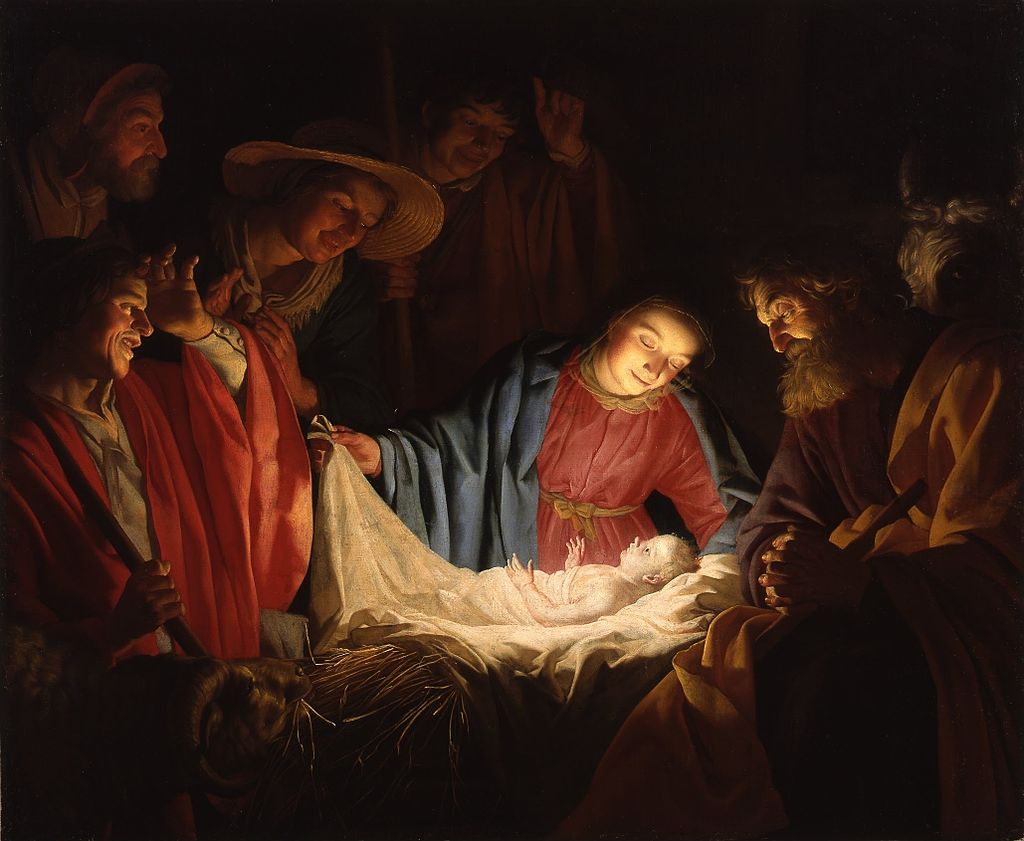
Adoration of the Shepherds by Gerard van Honthorst [Public domain], via Wikimedia Commons
Two thousand years later, fierce ethical debates about the value of a newborn baby’s life continue, as I know only too well. Is it really worth investing serious NHS resources to give a premature baby born at the limits of viability a chance of survival? Or should we focus on the bigger babies who have the best chance of healthy survival? Should we too be concentrating on selecting the newborn that is worth rearing?
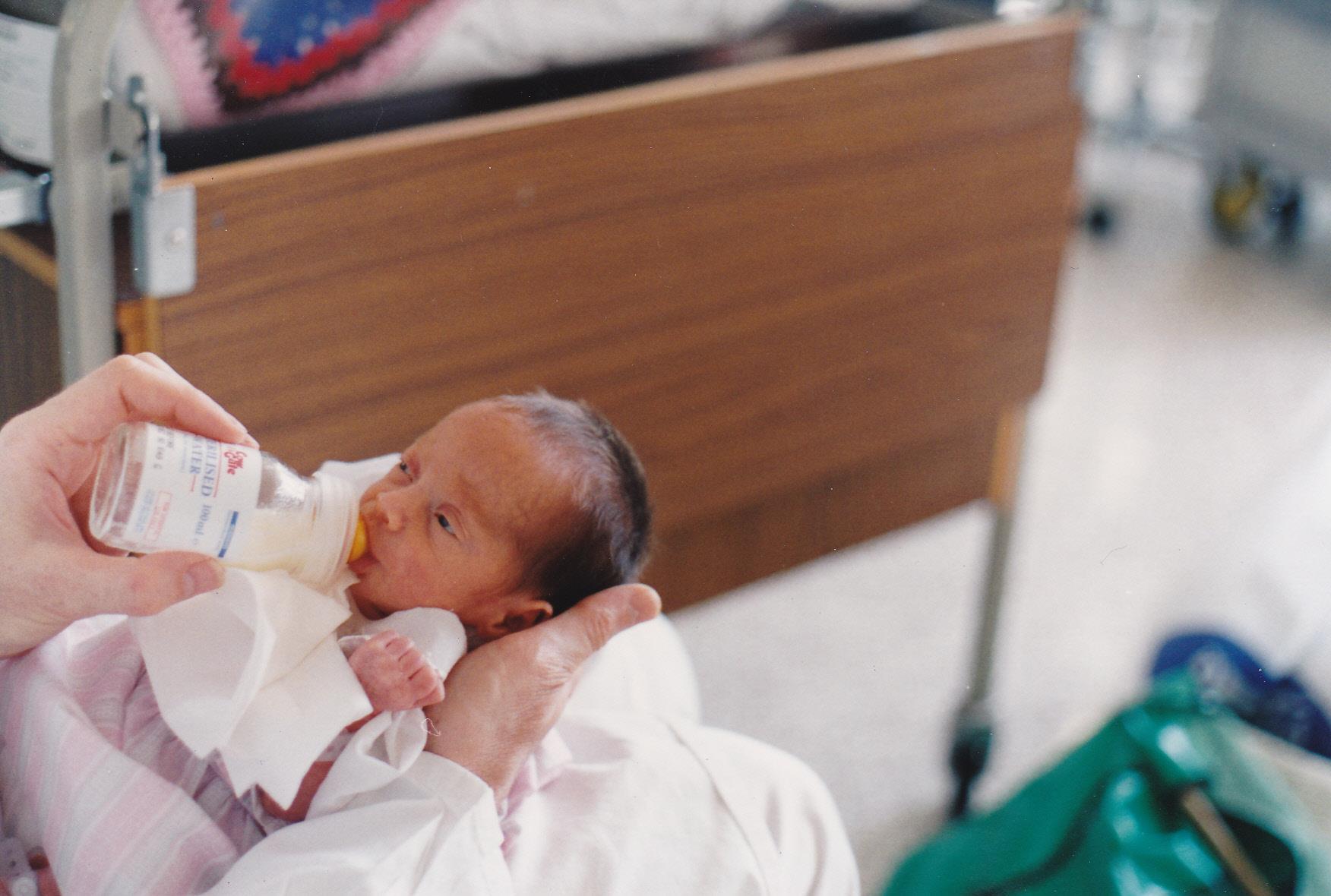
© Steph Bryant
In our modern secularised age which often seems to prize the masculine virtues, where autonomy, control, and self-determination are lauded as the greatest goods of life, the story of Christmas has special resonance. Dependence and fragility do not diminish our unique status and human value.
And whatever happened to Luke’s strange narrative? Surely that crude and offensive story of a pathetic, fragile God squirming in a borrowed animal’s manger was doomed to oblivion compared with the eternal and beautiful truths of orthodox Judaism, ancient noble religions and Platonic mysticism. Yet here we are 2000 years later. Great convulsions have taken place in world history and thinking. The Roman Empire disintegrated. Islam rose and flowered. In the history of thought we have had the Renaissance, The Reformation, The Enlightenment, the 20th Century – they have all come and gone. Science and technology have transformed our world and our understanding. The acids of secularism have destroyed comfortable religious dogmas.
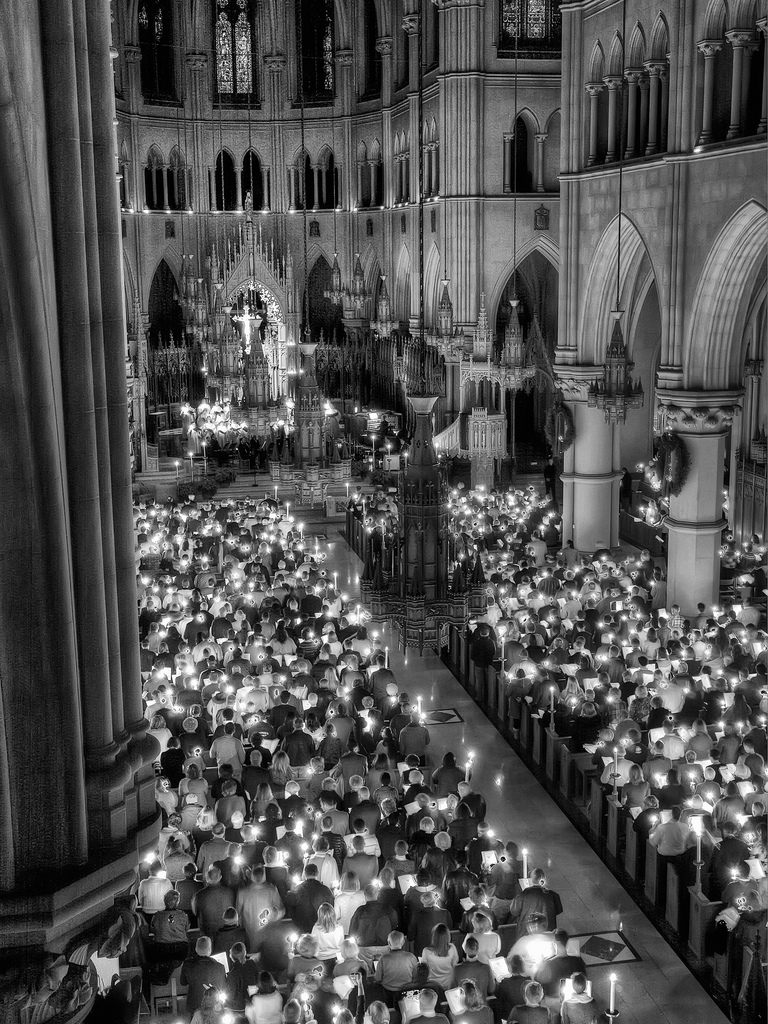
Cathedral Carol Sing 2009 by Wasabi Bob. Flickr. (CC BY-NC-ND 2.0)
Here we are in December 2016. Platonic mysticism doesn’t seem to have too many followers, and most of the ancient noble religions have been banished to the dustbin of history. But this month 2 billion of the planet’s inhabitants will be celebrating the birth of a pathetic, fragile baby in a borrowed stable.
The Christian faith claims that God has become one of us. God is found in human flesh, in the fragile, vulnerable and wonderful forms which we care for in our neonatal units.
Because God became a baby, all babies are special.
 John Wyatt is Professor of Ethics and Perinatology at University College London and also Honorary Consultant Neonatologist at University College London Hospitals. He was co-Principal Investigator for a research project based at the Faraday Institute investigating the implications for human self-understanding of recent advances in artificial intelligence and robotic technology. In this role he provides research supervision and guidance for junior academic staff. He participates frequently in the teaching and public dissemination activities of the Faraday Institute. He continues to lecture at undergraduate and postgraduate level both nationally and internationally in topics relating to biomedical ethics and the wider implications of technological advances. He participates frequently in public meetings and debates and occasional radio and television programmes concerning topical issues in biomedical ethics.
John Wyatt is Professor of Ethics and Perinatology at University College London and also Honorary Consultant Neonatologist at University College London Hospitals. He was co-Principal Investigator for a research project based at the Faraday Institute investigating the implications for human self-understanding of recent advances in artificial intelligence and robotic technology. In this role he provides research supervision and guidance for junior academic staff. He participates frequently in the teaching and public dissemination activities of the Faraday Institute. He continues to lecture at undergraduate and postgraduate level both nationally and internationally in topics relating to biomedical ethics and the wider implications of technological advances. He participates frequently in public meetings and debates and occasional radio and television programmes concerning topical issues in biomedical ethics.



